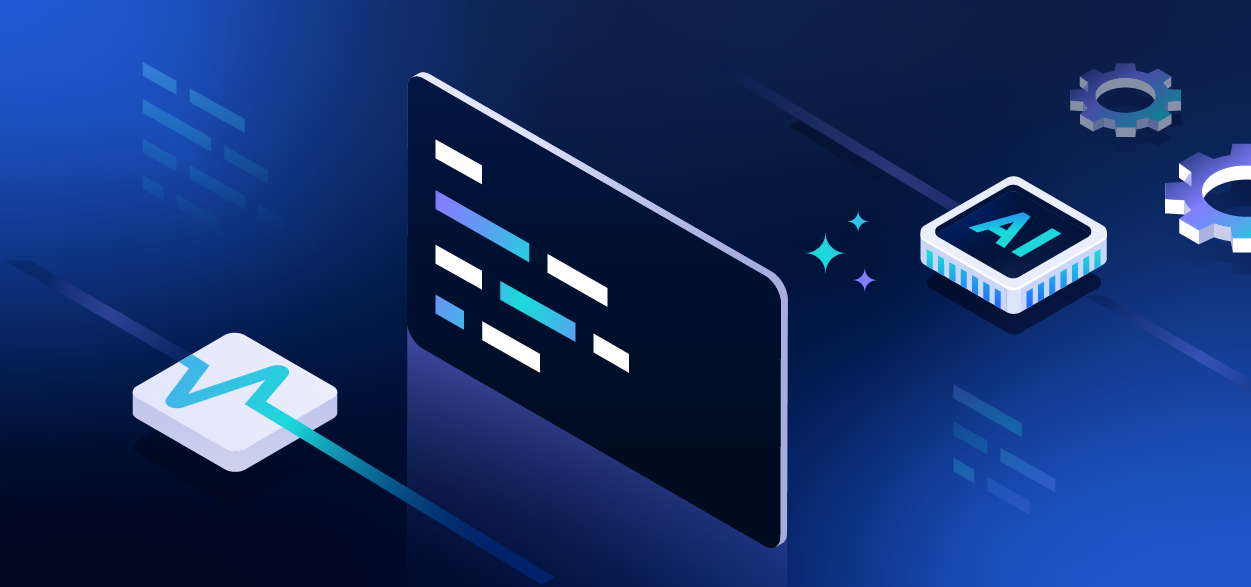Organizations now deploy several different AI models simultaneously, which presents significant challenges in coordinating these systems effectively. What started as simple single-model implementations has exploded into complex ecosystems requiring sophisticated orchestration.
Modern AI deployments demand seamless coordination between specialized models, each optimized for specific tasks, from natural language processing to image recognition to predictive analytics. This shift has made AI orchestration platforms critical for successful AI implementations, managing data flows, model interactions, and workflow dependencies that would otherwise create operational chaos.
A new generation of specialized platforms has now emerged, each targeting specific use cases and technical requirements. However, this abundance creates its own challenge: determining which orchestration approach aligns with your particular needs, especially as agentic AI introduces additional layers of complexity.
This curated list of agentic AI development platforms will help you identify the right solution for your needs. Each tool has been selected based on its ability to handle autonomous agent development, its integration capabilities, and its track record in production environments.
Microsoft Copilot Studio
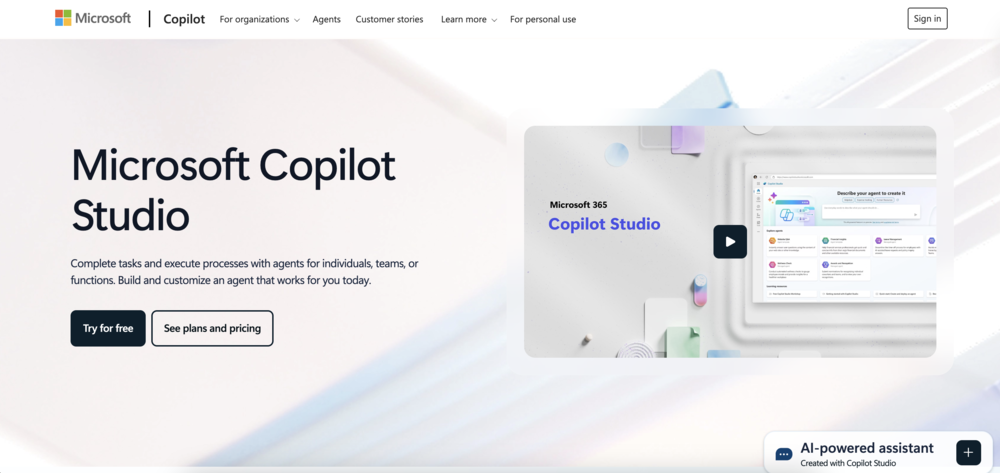
Microsoft Copilot Studio breaks down the technical barriers that have kept AI agent development in the hands of specialists. This low-code platform transforms how businesses approach intelligent automation by making sophisticated AI agent creation accessible to anyone who can describe what they want to achieve.
Copilot Studio key features
The platform centers around a visual, drag-and-drop interface that puts enterprise-grade AI capabilities within reach of business users. You can build both conversational agents for customer interactions and autonomous agents that handle complex workflows without human intervention. The natural language authoring feature lets you create agent behaviors simply by describing your goals in plain English. Behind the scenes, generative orchestration automatically selects the right topics, actions, and knowledge sources based on context.
Copilot Studio best use case
Where Copilot Studio truly excels is in extending existing Microsoft 365 environments with custom intelligence. Organizations deploy it for sales support automation, employee benefits inquiries, and public health tracking systems. Finance teams use it for invoice processing workflows, while marketing departments build research automation. Customer service operations benefit from intelligent routing and response systems. HR departments automate time management and onboarding processes.
Copilot Studio integration capabilities
The integration story revolves around Microsoft's ecosystem:
- Native connections to Microsoft 365 apps including Teams, SharePoint, and Copilot Chat
- Access to over 1,400 Power Platform connectors for external services
- Custom plugin development for specialized data sources
- Multi-channel publishing across websites, social platforms, and messaging apps
Copilot Studio pricing
Pricing follows Microsoft's consumption model with message packs at $200 per month covering 25,000 messages. Microsoft 365 Copilot subscribers pay $30 per user monthly, which includes agent usage within the Microsoft ecosystem. Message consumption varies, with standard interactions counting as one message, while generative AI responses using your data counting as two.
Copilot Studio ideal for
This platform serves organizations already invested in Microsoft's ecosystem. IT administrators building task-specific agents, employees creating internal knowledge systems, and developers working on complex agent scenarios all benefit from its capabilities. Customer service teams implementing intelligent chatbots, sales departments automating order workflows, and legal teams handling contract reviews find particular value. It's designed for businesses wanting to extend Microsoft 365 with custom AI while maintaining enterprise security and governance standards.
Microsoft AutoGen
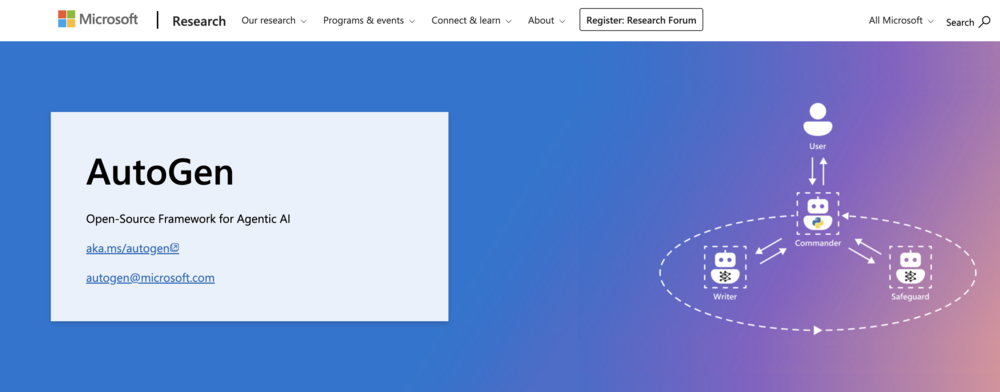
While most platforms abstract away the complexity of agent communication, Microsoft's AutoGen embraces it as a core feature, giving developers unprecedented control over how AI agents interact with each other and with humans.
This open-source framework operates on a layered architecture that scales from simple conversational agents to complex multi-agent orchestrations. You're not locked into a single interaction pattern; agents can work autonomously, collaborate with humans, or operate in hybrid modes depending on your application's requirements.
Microsoft AutoGen key features
AutoGen's architecture consists of three distinct layers: Core, AgentChat, and Extensions, each serving different complexity levels. The Core layer handles fundamental agent operations, while AgentChat enables conversational interactions, and Extensions add advanced capabilities for enterprise workflows.
The framework's event-driven messaging system allows agents to communicate asynchronously, creating dynamic workflows that adapt based on context and outcomes. Agents can interrupt each other, negotiate solutions, and even debate approaches to problem-solving.
What sets AutoGen apart is its cross-language interoperability, currently supporting Python and .NET agents working together seamlessly. Your Python-based data analysis agent can collaborate directly with a .NET business logic agent without complex integration work.
AutoGen Studio provides a low-code interface for teams that need rapid prototyping capabilities. You can build, test, and share multi-agent solutions without extensive programming knowledge, then export the underlying code for production deployment.
Microsoft AutoGen best use case
AutoGen excels when your application requires genuine collaboration between multiple AI agents. Traditional single-agent systems break down when tasks require different types of reasoning, multiple perspectives, or iterative problem-solving approaches.
The framework handles both deterministic workflows, where agent interactions follow predictable patterns, and dynamic scenarios where agents must adapt their communication based on emerging context. Research teams use AutoGen for multi-agent collaboration studies, while enterprises deploy it for business processes requiring multiple AI specializations.
Coding applications represent a particularly strong use case. AutoGen enables back-and-forth troubleshooting between agents, with one agent writing code while another tests it, and a third agent debugging issues. This collaborative approach often produces better results than single-agent coding solutions.
Microsoft AutoGen integration capabilities
AutoGen's integration philosophy centers on flexibility rather than convenience. The system connects with multiple LLM providers, allowing you to assign different models to different agents based on their specific tasks. Your reasoning agent might use a commercial AI model while your data processing agent uses a specialized model optimized for structured data.
The Extensions module expands capabilities beyond basic agent communication. You can add advanced model clients, create specialized agent types, and build tools that enhance agentic workflows. These extensions integrate directly with backend services and APIs, enabling agents to interact with your existing infrastructure.
Microsoft AutoGen pricing
AutoGen is a completely free open-source framework. Microsoft provides the tooling and documentation without licensing fees, making it accessible for both research and commercial applications.
However, you'll need API keys for the underlying AI models your agents use. AutoGen doesn't include free access to commercial AI services. You’ll need to pay directly for the model usage based on your chosen providers' pricing structures.
Microsoft AutoGen ideal for
AutoGen serves developers who need precise control over agent behavior and communication patterns. If your application requires agents to negotiate, debate, or collaborate on complex problems, AutoGen's architecture provides the necessary building blocks.
The framework particularly benefits teams building intelligent development workflows. Code generation, execution, and debugging become collaborative processes where multiple agents contribute their specialized capabilities. This approach often produces more robust solutions than traditional single-agent coding tools.
Development teams working on research projects or experimental applications will find AutoGen's flexibility invaluable for testing different multi-agent interaction patterns before committing to a specific approach.
IBM Watsonx Orchestrate
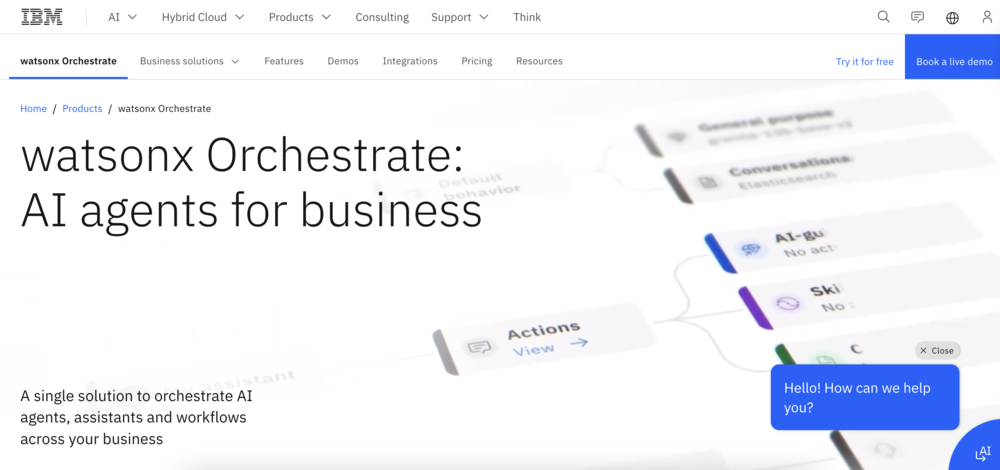
Many platforms promise seamless integration but deliver fragmented experiences that create more work than they eliminate. IBM watsonx Orchestrate takes a different approach, building on decades of enterprise software experience to deliver genuine agentic capabilities at scale.
IBM watsonx key features
IBM watsonx Orchestrate operates through multi-agent orchestration that enables custom, pre-built, and third-party agents to collaborate in real-time within one unified interface. The platform includes tracing capabilities that let you continuously observe, troubleshoot, and monitor agent behavior throughout development and production. One-click deployment reduces deployment time from hours to seconds through a simple UI experience. Enterprise-grade guardrails are embedded throughout the system, including agent observability and lifecycle management to optimize performance.
IBM watsonx best use case
Complex enterprise workflows requiring orchestration across multiple systems represent this platform's sweet spot. It excels at orchestrating agentic workflows across business systems while managing identity, access control, and governance. Business users can build custom workflows that respond in real-time to shifting business conditions. The platform supports both deterministic and dynamic agentic workflows for business processes across planning, design, coding, and testing phases.
IBM watsonx integration capabilities
watsonx Orchestrate connects with more than 80 enterprise applications including:
- ERP and CRM systems
- HR and IT platforms
- Productivity suites from Adobe, AWS, Microsoft, Oracle, Salesforce, SAP, ServiceNow, and Workday
This extensive integration allows AI agents to run within existing environments, eliminating silos and manual handoffs.
IBM watsonx pricing
Pricing follows usage-based tiers. The AI studio offers a free trial, followed by Essentials (starting at $0/month with pay-as-you-go model access) and Standard (starting at $1050/month) plans. Foundation models are priced per million tokens, with rates ranging from $0.10 to $5.00 depending on model size and capabilities. Enterprise pricing requires contacting IBM directly.
IBM watsonx ideal for
Organizations implementing enterprise-grade AI automations that need both flexibility and control will find this platform compelling. Large enterprises with complex workflows spanning multiple departments, systems, and data sources represent the optimal use case.
Relevance AI
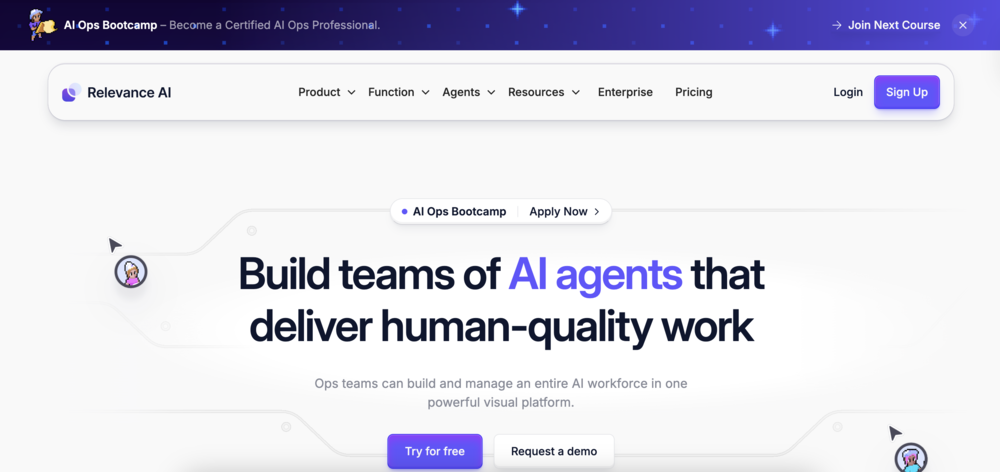
Most workflow automation tools force you to think in terms of rigid if-then logic. Relevance AI breaks this mold by enabling you to build teams of AI agents that work with context and meaning rather than just following predetermined scripts.
This platform positions itself as a comprehensive agentic automation solution where AI agents deliver human-quality work autonomously. The key difference lies in how these agents approach complex tasks is that they don't just execute steps, they make decisions based on understanding.
Relevance AI key features
The platform's visual interface eliminates the coding barrier that typically blocks non-technical teams from building AI agents. Their "Invent" functionality stands out, enabling you to create custom AI agents simply by describing what you want them to do. This goes beyond drag-and-drop automation to natural language agent creation.
Beyond the basics, Relevance AI includes metadata capture, scheduling controls, and approval workflows to maintain oversight of your AI workforce. The platform takes an LLM-agnostic approach, supporting providers like OpenAI, Claude, Gemini, and others depending on your specific needs. This flexibility becomes crucial when different tasks require different AI capabilities.
Relevance AI best use case
Where traditional automation fails, Relevance AI excels. The platform handles complex tasks where decisions rely on meaning rather than structure.
A good example is AI BDR (Business Development Representative) agents that book meetings 24/7, lifecycle marketing automation that adapts to customer behavior, account research that extracts insights from unstructured data, and customer support automation that actually understands user intent.
Relevance AI integration capabilities
With connections to over 2000 integrations across sales, marketing, communication, and productivity tools, Relevance AI positions itself as a central hub for your existing tech stack. The platform provides trigger functionality through native integrations or custom HTTP endpoints, enabling your agents to respond to events from systems like HubSpot, Gmail, and WhatsApp.
This extensive integration capability means your AI agents can operate within your current workflows rather than requiring you to rebuild processes around new tools.
Relevance AI pricing
The pricing structure follows a credit-based model across multiple tiers:
- Free: $0/month with 100 credits/day (10% off for annual subscription)
- Pro: $19/month with 10,000 credits/month (10% off for annual subscription)
- Team: $199/month with 100,000 credits/month (10% off for annual subscription)
- Business: $599/month with 300,000 credits/month (10% off for annual subscription)
- Enterprise plans with custom pricing are also available for larger organizations requiring advanced features like SSO and multi-region support.
The credit system provides transparency in usage costs, though actual consumption will depend on the complexity of your agent workflows and the AI models you choose.
Relevance AI ideal for
Relevance AI targets operations teams and subject-matter experts who need to build AI agents without technical backgrounds. This focus on accessibility makes it particularly valuable for sales teams seeking to automate prospecting, marketing teams creating personalized campaigns, and support teams handling customer inquiries autonomously.
The platform works best for organizations that understand their processes well enough to describe them in natural language but lack the technical resources to build custom AI solutions from scratch.
CrewAI
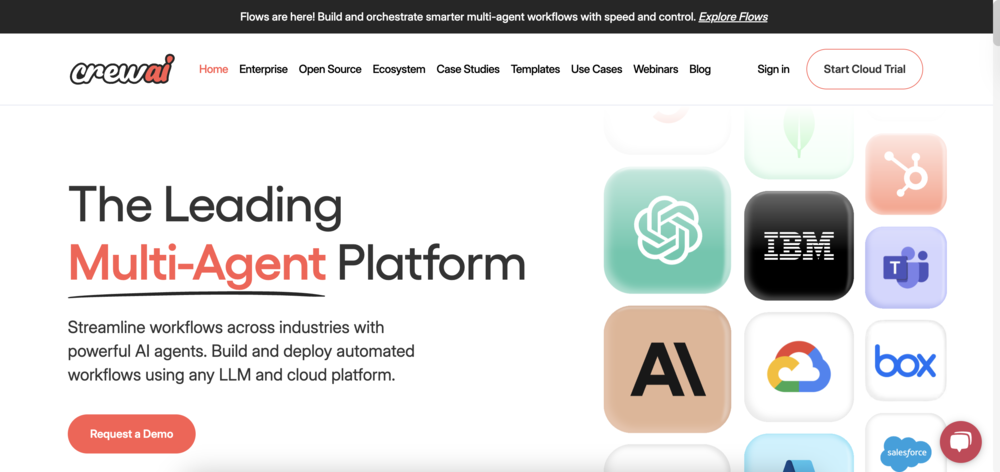
CrewAI has captured the attention of the enterprise world for good reason. 60% of Fortune 500 companies are currently using this open-source framework to power their agentic AI initiatives. What makes CrewAI different from other multi-agent platforms is its focus on collaborative intelligence where specialized agents work together as a high-performing team.
CrewAI key features
The platform operates on two distinct but complementary modes: "Crews" for autonomous agent collaboration and "Flows" for structured workflow orchestration. This dual approach gives you the flexibility to let agents work independently when you need creativity, while maintaining tight control when precision matters most.
Deployment flexibility sets CrewAI apart from cloud-only solutions. You can run it in your own infrastructure, on-premises, or in the cloud to match your security and compliance requirements. The management interface keeps humans in the decision loop without slowing down the agents. Most importantly, CrewAI tracks the metrics that matter: quality, efficiency, and ROI of your AI automations.
CrewAI best use case
Complex business processes that require both analytical thinking and creative problem-solving represent CrewAI's sweet spot. Sales teams use it for lead scoring that considers both quantitative data and qualitative insights. Marketing departments deploy it for content creation that maintains brand voice while adapting to different audiences. Finance teams rely on it for stock analysis that combines market data with sentiment analysis.
The framework supports your entire development process, from initial planning where agents can research and validate ideas, through coding where they can generate and review code, to testing where they can identify edge cases and performance bottlenecks.
CrewAI integration capabilities
The platform connects with the tools your teams already use. Project management integration covers Jira, ClickUp, and Asana. Communication flows through Gmail and Slack. Business applications include Salesforce, HubSpot, and Zendesk.
Beyond standard integrations, CrewAI includes built-in capabilities for web scraping, document analysis, and data processing. This eliminates the need for additional tools when your agents need to gather information or process documents.
CrewAI pricing
The open-source version gives you full access to CrewAI's core capabilities at no cost. While CrewAI do not list their pricing on their website, according to Futurepedia, pricing starts around $49.99 per month, though specific enterprise pricing requires direct contact with CrewAI.
CrewAI ideal for
Technical teams building sophisticated AI systems will find CrewAI's Python-based architecture familiar and powerful. The framework works best for organizations that need autonomous decision-making across complex workflows but want to maintain control over their AI operations.
Companies implementing enterprise-grade AI automations particularly benefit from CrewAI's combination of flexibility and governance. The platform gives you the autonomy to let agents make decisions while providing the visibility and control that enterprise environments demand.
Adept AI
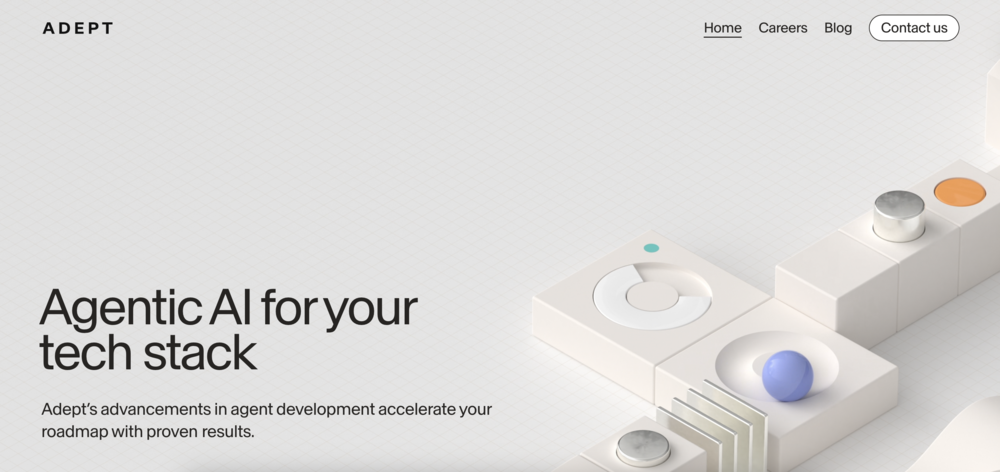
Adept AI takes a unique approach to agentic automation It sees your screen exactly as you do and acts through the same visual interface you use every day. No APIs, no complex integrations, no brittle automation that breaks when someone changes a button color.
Adept AI key features
The platform's ACT-2 model represents a breakthrough in UI understanding, trained on trillions of tokens specifically focused on web interfaces and real software usage. Adept processes visual information at the pixel level, understanding interfaces through coordinates and keystrokes rather than underlying code.
The system operates through direct visual perception, eliminating the integration headaches that plague traditional automation tools. When a software vendor updates their interface, Adept adapts automatically because it sees the changes just like a human user would.
Adept AI best use case
Adept shines in scenarios with complex workflows that jump between multiple applications with no API connections. Corporate recruiters use it to advance candidates through multi-stage processes with a single click. Accounting teams extract invoice data and populate accounts payable systems without manual data entry.
The platform excels at transforming unstructured data into structured formats across a variety of tools, handling the kind of complex, multi-step processes that would otherwise require dedicated staff.
Adept AI integration capabilities
Traditional automation requires extensive API development and maintenance. Adept sidesteps this entirely through its visual approach, working seamlessly across websites and applications regardless of their underlying architecture. The system operates with applications that lack text or HTML representation, making it infinitely extensible.
Adept AI pricing
Adept offers enterprise pricing, requiring direct contact with their sales team. The company tailors solutions based on organizational scale and specific automation requirements.
Adept AI ideal for
Adept serves enterprises that have hit the limits of traditional automation. Supply chain teams use it for shipping availability checks, financial services for document data extraction, and healthcare organizations for compliance-heavy application processing. The platform works best for businesses seeking to automate complex software processes while maintaining human oversight.
UiPath
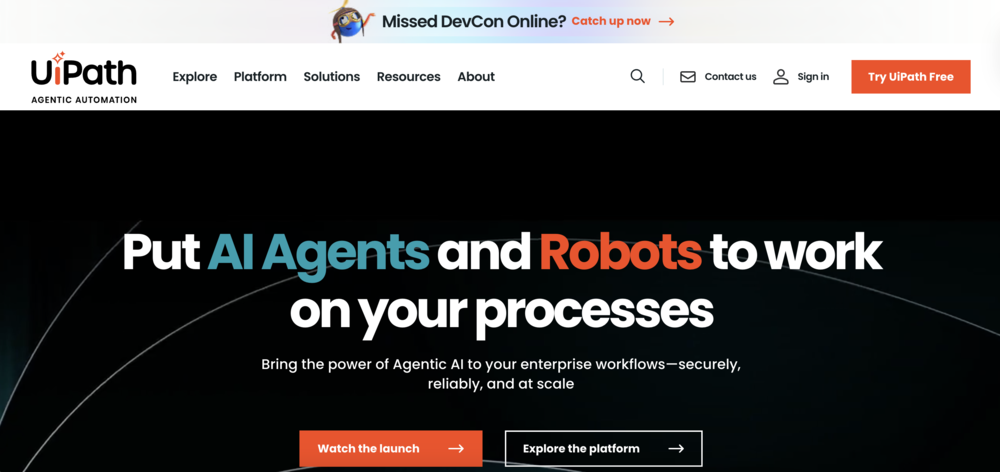
Traditional Robotic Process Automation (RPA) bots stop working when a button moves or a form field changes, leaving you with broken workflows and frustrated users. UiPath attacks this problem by combining RPA with agentic AI capabilities, creating systems that adapt and heal themselves.
UiPath key features
UiPath handles the complexity of orchestrating AI agents, robots, and human workers within the same workflow. The platform's healing agent stands out as its most powerful feature, dynamically adjusting execution paths when UI changes occur, essentially teaching your automations to fix themselves. This creates self-healing automations that suggest repairs for broken processes instead of simply failing.
Cross-platform development support lets you build, test, and debug automation projects across Windows, Mac, and Linux environments. The platform treats each component as part of a unified system where intelligent agents handle strategic decisions while robots execute precise actions.
UiPath best use case
Complex, unstructured business processes that previously resisted automation now become manageable through UiPath's orchestrated approach. End-to-end processes like accounts payable that traditionally require multiple manual handoffs can now run autonomously. Healthcare organizations use it for referral processing, while financial services deploy it for invoice management and customer service optimization.
The platform proves particularly valuable during application testing and deployment phases, where self-healing capabilities prevent minor interface changes from breaking entire workflows.
UiPath integration capabilities
UiPath's Integration Service combines UI and API automation within a single development environment. The platform connects with over 80 enterprise applications including Salesforce, Microsoft 365, SAP, and ServiceNow. This API-centric approach improves data consistency across enterprise systems while maintaining the flexibility to handle visual interfaces.
UiPath pricing
Pricing follows a tiered structure starting with a Basic plan at $25 per month for individuals and small teams. The Standard tier requires contacting sales and includes enterprise automations with agents, document processing, and process orchestration. The Enterprise tier adds self-healing UI automation, process monitoring, and infrastructure optimization.
UiPath ideal for
UiPath serves organizations where process automation needs to span multiple systems and handle unexpected changes gracefully. IT teams benefit from automating complex workflows that cross departmental boundaries. Finance departments use it for streamlining invoice management and approval processes. Customer service operations see improved response capabilities through automated ticket routing and resolution.
ServiceNow
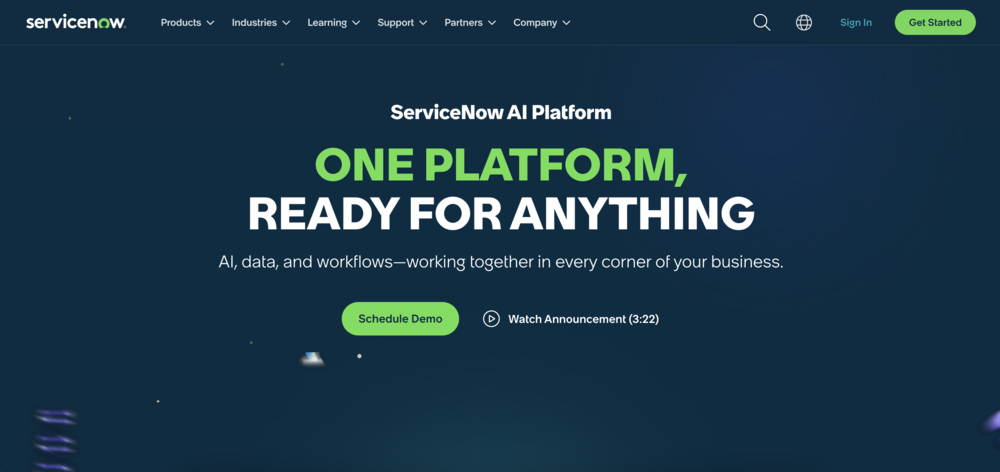
ServiceNow builds agentic AI directly into an enterprise platform that 85% of Fortune 500 companies already use. Rather than bolting AI onto existing systems, the platform treats autonomous agents as native citizens within established workflows, data structures, and governance frameworks.
ServiceNow key features
The platform centers around AI Agent Fabric, a communication backbone that enables autonomous agents to collaborate across departments without breaking existing enterprise controls. This is a complete orchestration layer that connects agentic systems whether they're built by ServiceNow or third-party providers.
ServiceNow's AI Control Tower provides centralized governance, letting you monitor and optimize all AI assets from a single interface. The system handles policy enforcement, access control, and performance tracking automatically, eliminating governance headaches.
The platform supports agentic workflows that operate with minimal human intervention while maintaining full audit trails. Agents can escalate issues, collaborate with other agents, and adapt their behavior based on changing business conditions, all within established compliance frameworks.
ServiceNow best use case
ServiceNow excels when you need autonomous agents to work within existing enterprise constraints. The platform has proven particularly effective in IT operations, where AI agents reduce incidents escalated to specialists by 18% and cut resolution time by 33%.
The real strength lies in cross-departmental orchestration. ServiceNow's agents can work together as teams, connecting IT incident management with HR processes, customer service operations with financial workflows, and supply chain automation with risk management systems.
ServiceNow integration capabilities
ServiceNow's integration approach differs from typical API-first platforms:
- Integration Hub serves as the preferred method for outbound integrations with pre-built spokes
- Direct connection to over 1,000 certified apps from the ServiceNow Store
- Native support for web services, file imports, JDBC connections, LDAP, REST, and SOAP
- Third-party system integration through ServiceNow Store integrations built by ServiceNow or partners
ServiceNow pricing
ServiceNow offers enterprise pricing, requiring direct contact with their sales team. The company tailors solutions based on organizational scale and specific automation requirements.
ServiceNow ideal for
ServiceNow serves organizations that need agentic AI within established governance frameworks. The platform is ideal for businesses that can't afford to disrupt existing workflows while implementing autonomous agents.
You'll find ServiceNow most valuable if you're dealing with complex, multi-departmental processes where agents need to collaborate across IT, customer service, HR, and operations. The platform works best when you need both autonomous decision-making and centralized control—a combination that's difficult to achieve with standalone agentic tools.
Zapier AI
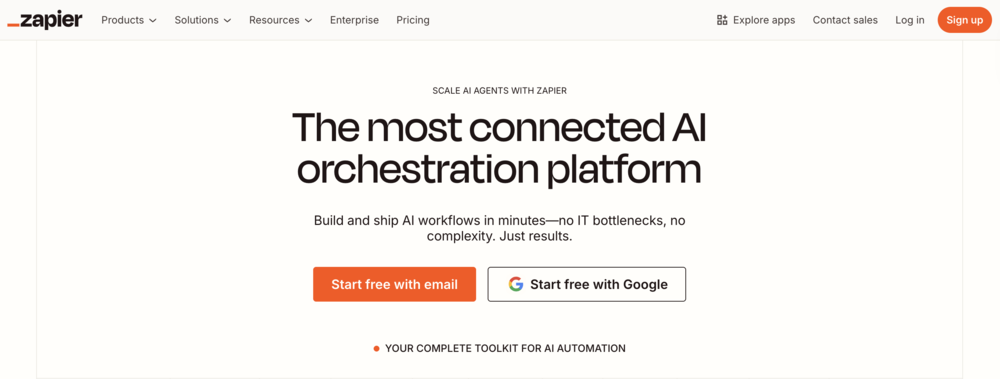
What if you could turn anyone on your team into an AI orchestrator? That's exactly what Zapier AI does; it takes ordinary users and gives them the power to create specialized AI assistants that work across thousands of applications without writing a single line of code.
Zapier AI key features
The platform delivers autonomous agents that actively monitor triggers and perform actions without constant direction. Your agents can tap into live data sources from tools like HubSpot, Notion, and Asana, finding, analyzing, and summarizing up-to-date information as conditions change. Need research capabilities? The platform incorporates web browsing functionality for research tasks. You can even integrate agents into Zaps as steps to handle research-heavy work within broader workflows. An activity dashboard provides complete logs of agent activities, so you always know what your AI workforce is doing.
Zapier AI best use case
Zapier AI shines across your entire development process. During planning and design phases, it creates meeting agendas and prioritizes tasks based on meeting notes. When you're deep in development, it generates content by pulling research from the web. For testing and user feedback, it analyzes customer sentiment and tracks task progress. Common implementations include lead enrichment, customer support automation, email management, and project coordination.
Zapier AI integration capabilities
With a long history in automation and connections to nearly 8,000 apps, Zapier AI offers unmatched integration breadth. This means your agents can work across your entire tech stack through specific triggers and actions.
Zapier AI pricing
Zapier AI starts at $50/month following its free trial period. Custom enterprise solutions with additional features are available by contacting the sales team.
Zapier AI ideal for
This platform suits operations teams needing to delegate internal tasks. It's particularly valuable for marketing teams conducting web research, support teams routing tickets, and sales teams qualifying leads. Organizations seeking to scale intelligent automation while maintaining oversight will find Zapier AI's approach compelling.
Beam AI
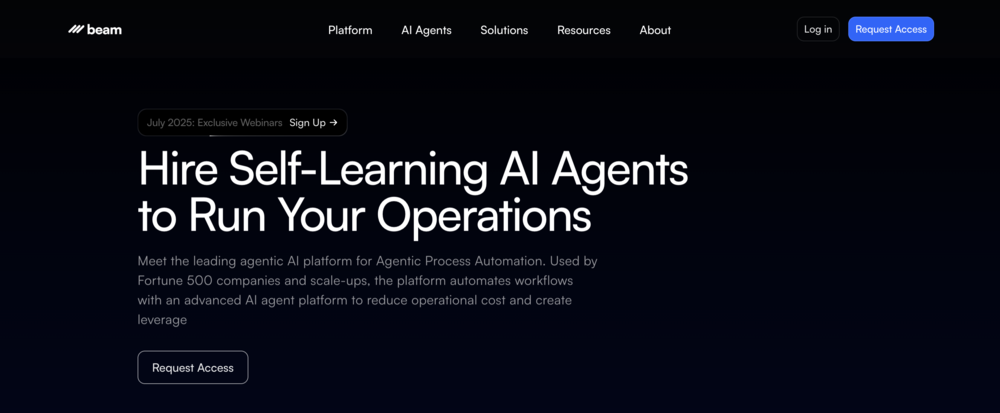
Beam AI offers enterprise-grade agentic process automation platform. Rather than forcing you to adapt your workflows to rigid automation rules, the platform builds AI agents that learn from your existing processes and adapt autonomously to changing demands.
Beam AI key features
The platform's Agent OS architecture delivers accuracy, reliability, and flexibility. Multiple autonomous agents collaborate rather than operating in isolation, creating intelligent workflows that can handle complex business scenarios.
The system's agentic workflows use advanced learning capabilities to identify essential tasks and automate them without constant reconfiguration. When faced with complex processes, AI agents break them down into manageable steps and select the appropriate tools for execution. This approach supports every phase of application development, from initial workflow planning through testing and user interaction.
Beam AI best use case
Complex business processes across industries benefit from Beam AI's automation capabilities. Financial services teams streamline quotation generation and debt collection workflows. Supply chain operations see improved efficiency through automated order management. Customer service departments reduce complexity by optimizing contact management across multiple systems.
Beam AI integration capabilities
Beam AI connects with essential business systems including Airtable, Aircall, ServiceNow, Copper, and Asana. The platform supports productivity tools like Gmail, Google Sheets, Jira, and Notion for comprehensive task management.
Integration happens through API wrappers that connect with external services without requiring extensive custom development. This approach reduces implementation time while maintaining the flexibility needed for enterprise-scale deployments.
Beam AI pricing
Beam AI offers enterprise pricing, requiring direct contact with their sales team. The company tailors solutions based on organizational scale and specific automation requirements.
Beam AI ideal for
Fortune 500 companies and scale-ups implementing enterprise-grade AI automations find the most value in Beam AI. Organizations automating repetitive workflows across financial services, HR recruitment, customer service, and healthcare see significant operational improvements.
The platform particularly benefits teams requiring both flexibility and control over agentic applications. Enterprise security features including EU hosting, GDPR compliance, and SOC Type II certification ensure the platform meets stringent corporate requirements.
Conclusion
The passive AI systems that once dominated application development are no longer sufficient for today’s demands. The platforms we've explored represent a fundamental shift from reactive assistants to truly autonomous digital agents that can pursue goals, make decisions, and adapt without constant human oversight.
Most importantly, these tools solve a fundamental problem: the gap between what AI promises and what it actually delivers. Customer service bots that proactively solve problems, workflow automation that adapts to changing conditions, and virtual assistants that truly assist are no longer theoretical possibilities.
Learn more:
- What is Agentic AI and How Does it Differ From Generative AI
- The Leader's Guide to Mobile App Development With Agentic AI
- Benchmarking AI Coding Assistants for Mobile App Crash Resolution
- AI-Enabled Mobile Observability: A Future of Zero-Maintenance Apps
Instabug empowers mobile teams to maintain industry-leading apps with mobile-focused, user-centric stability and performance monitoring.
Visit our sandbox or book a demo to see how Instabug can help your app

